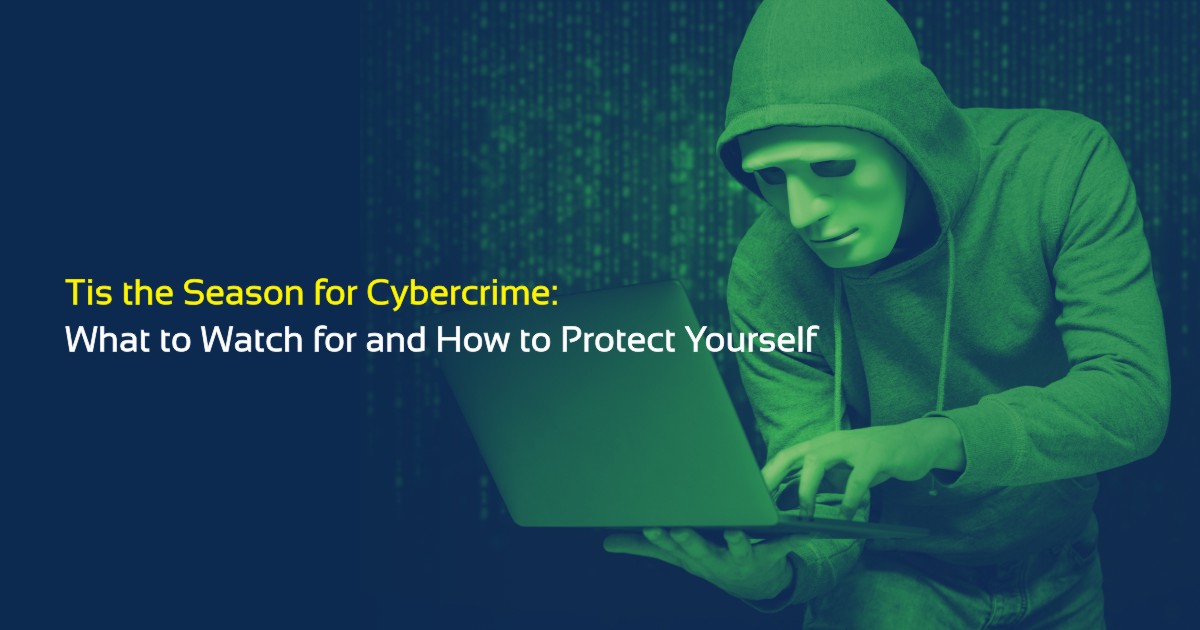It’s time for the holiday shopping season, which means cybercriminals are busy deceiving even the most cyber-savvy consumers. There’s no doubt this holiday season will prove especially lucrative for bad actors: The National Retail Federation predicts that holiday spending will return to pre-pandemic levels in 2023.
However, a little vigilance goes a long way when it comes to preventing cybercrime. The following are a few emerging threat trends to watch out for, a few classic holiday-season attack tactics that we expect will resurface, and simple tips for keeping your data secure this holiday season.
A Not-so-Special Delivery: New Shipping Scams Emerge
Even though holiday shoppers have always prioritized competitive prices and seasonal promotions, many younger shoppers expect their products to be delivered or picked up the same day. The same-day delivery preference is also prevalent among Gen Z consumers born between 1996 and 2010.
The cybercriminals are taking note of this and coming up with new scams to take advantage of shoppers’ desires for faster delivery times. Phishing via text message is the most common form of these scam attempts. When receiving such communications, recipients are usually informed that a shipping delay or an impending delivery is in progress, and they are asked to click on a link to confirm their name, address, and other personal information. When a malicious link is clicked, bad actors can capture sensitive information, or even read the cache on a mobile device and access other data, such as your usernames and passwords for apps and websites you regularly use. There is additional guidance offered by the Federal Communications Commission on spotting and avoiding package delivery scams.
More Travel-Related Hacks Are Likely to Arrive Soon
Consumers are increasingly planning to travel over the holiday season, with 48% planning to do so in the near future. As a result, airports and hotels are preparing for a hectic holiday season. Travellers, however, should be aware that cybercriminals have taken note of this renewed interest and are planning accordingly. During the last few months, we’ve observed an increase in bad actors creating fake websites designed to look like airline or travel agency websites. Although the websites appear strikingly similar to legitimate ones, cybercriminals post bogus phone numbers there. The scammers obtain customer information from the caller and use it to charge the caller for flights that didn’t exist or use it for other nefarious purposes after they posing as agents.
There are also non-digital, travel-related scams to watch out for this holiday season. The “fake taxi” trick is one of the most common scams, in which unofficial taxis charge travellers outrageous prices. There is even the possibility of people who look like airport officials with realistic badges directing people to illegitimate taxi services.
Taxi scams are not the only dangers to look out for. Watch out for broken taxi meters and inefficient routes taken by drivers. Apart from taxi scams, be careful of rental car companies charging exorbitant rates for damages that already existed. To protect yourself, take a video of the car you’re renting before you leave the rental car lot, and make sure the rental agency witnesses it. There are times when rental cars are covered in damaged areas, but those areas become apparent once you drive them.
In addition to the traditional holiday scams, children can also be recruited by organized crime to beg for money, or they can be tricked into using unreliable ATMs or Wi-Fi hotspots.
Classic Holiday Cybercrime Schemes to Watch For
During the holiday season, cybercriminals will seek to manipulate unsuspecting shoppers with a variety of scams. Since consumers are once again prioritizing better prices and promotions this holiday season, it’s not surprising that bad actors have reintroduced some of their tricks to lure them in.
Fake websites: Every year, fake shopping websites and tempting deals entice consumers to purchase products that don’t exist by offering low prices. Additionally, cybercriminals use typosquatting-a cyberattack that takes advantage of users’ mistyping of URLs-to create bogus websites. If you’re making an online purchase from a site you’ve never visited before, make sure the company you’re buying from is legitimate before making the purchase.
Web-based malware: It is common for cybercriminals to place fake ads and links on trusted websites, usually highlighting free or discounted items for sale. These ads are meant to lure shoppers from a secure site they’re visiting. Web-based malware is generally more prevalent around the holidays, as one might expect.
Social media scams: Cybercriminals frequently serve ads promoting non-existent or counterfeit products on social media. It is possible for others to use vouchers, gift cards, free products, and contests to entice users to click on links containing malware.
5 Tips for Keeping Yourself Safe This Holiday Season
During the holiday shopping season, cybercriminals are attempting to take advantage of the rush to steal personal information, but there are plenty of easy ways to protect yourself:
Patch and update: Always make sure your devices, software, browsers, and applications are up-to-date and patched.
Pay attention to the websites you browse: Cybercriminals regularly spoof popular shopping sites, so it’s crucial to do some detective work before clicking “add to cart.” Take a look at the design of the site. Does the site have numerous pop-up ads and broken links? Are there any grammatical errors in the copy? It’s possible to quickly determine whether the site you’ve landed on is legitimate with his kind of sleuthing.
Update passwords to avoid duplication: It is important to use unique usernames and passwords for every account you create. To keep track of login credentials for different accounts, use a password manager.
Use a credit card instead of a debit card when shopping online: Many credit cards offer fraud protection and can be turned off easily without freezing other assets. And make sure you opt-in to receive alerts from your credit card provider about suspicious activity associated with your account.
Remember that if something seems too good to be true, it probably is: While it’s possible to find standout deals for goods and services online, the combination of unusually low prices and high availability of popular items is generally a red flag.
As shoppers make their lists and check them twice, remember that cybercriminals are doing the same. Being aware of common attack tactics and knowing how to spot them in the wild can help you guard against scams this season.







